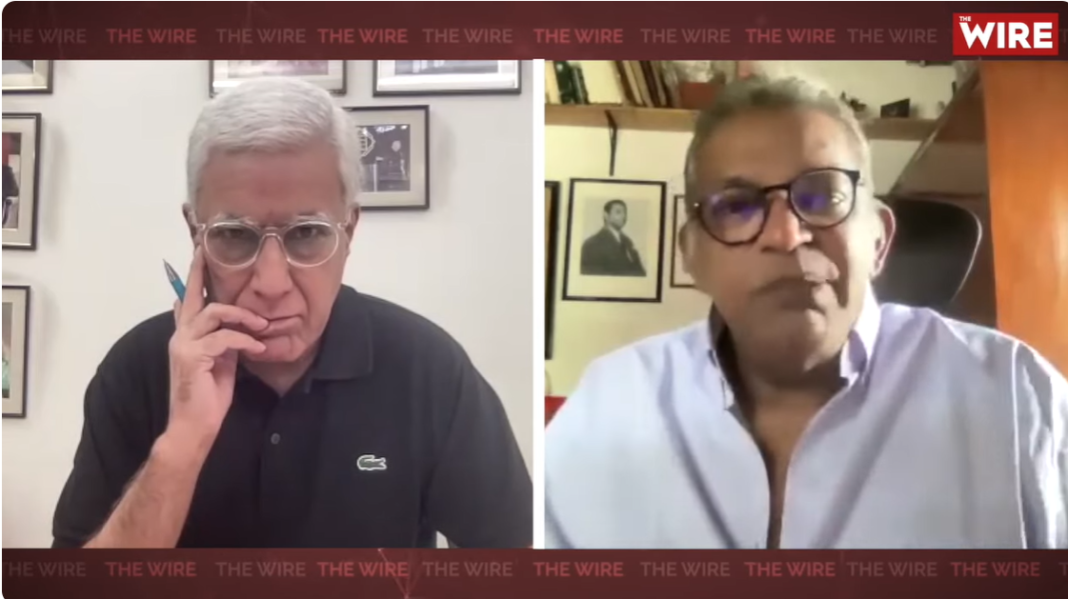In an interview to assess the enormous parliamentary mandate President Anura Kumara Dissanayake’s National People’s Power coalition has won and how he is likely to use his sweeping powers, one of the foremost political analysts in Sri Lanka says President Dissanayake will be one of the Island’s most powerful and popular presidents but adds that he is a pragmatist and not, as much of the Western press has described him, a straightforward marxist.
Paikiasothy Saravanamuttu, the Executive Director, Centre for Policy Alternatives, in a 25-minute interview, analyses the parliamentary mandate Sri Lanka’s president has received with 159 seats, which is more than two-thirds, and nearly 62% of the vote. This is the first time Sri Lanka’s proportional representation system has produced a two-thirds majority. More importantly, President Dissanayake’s NPP, whose largest component is the JVP, a Sinhala majority party, has won the majority of votes in the North, which is dominated by Tamils, in the East, where there is a large Muslim population, and in the hill country, where there is also a large Tamil population. This clearly indicates the extent to which the perception of the JVP has transformed since the 1980s, when it was widely viewed as anti-Tamil and Sinhala racist.
Dr. Saravanamuttu says Sri Lanka’s Tamils and Muslims were also strongly attracted by the anti-corruption platform of the NPP and the hope that it will provide good governance.
Whilst the Rajapaksa’s SLPP and former President Wickremesinghe’s UNP have been decimated, the NPP has been accepted as a truly national formation by all of Sri Lanka’s communities, making Sri Lanka today a more politically united country than it’s been for a long while.
Speaking about how President Dissanayake is likely to use his powers, Dr. Saravanamuttu said he expects the executive presidency to be abolished within the first term and the 13th Amendment to be fully implemented by handing over police and land powers to the provinces.
There is also an extensive discussion about the sort of economic policy President Dissanayake will follow and his commitment to re-negotiate the IMF agreement.
To help you follow the interview I will give you the main questions asked so that you know the range of issues covered.
Here they are:-
1) President Anura Kumara Dissanayake’s National People’s Power coalition has won 159 seats in parliament, which is more than two-thirds, and nearly 62% of the vote. On election day the President had hoped for “strong representation”. This is considerably better. So how much of a surprise is the result?
2) Let’s first focus on the mandate the Sri Lankan people have given. A two-thirds majority when you have proportional representation is not just extremely rare but am I right in saying it’s never happened before in Sri Lanka?
3) Second, the NPP, whose largest component is the JVP, a Sinhala majority party, has won the majority of votes in the North, which is dominated by Tamils, in the East, where there is a large Muslim population, and in the hill country, where there is also a large Tamil population. In fact, in Jaffna it’s won three out of six seats, beating all the Tamil parties. Isn’t this a significant transformation of the way the JVP is perceived? In the ’80s it was seen as anti-Tamil and Sinhala racist. Now Tamils and Muslims are voting for it in preference to their own regional parties.
4) Third, in September, in the presidential elections, President Dissanayake got 42% of the vote. Now the NPP has got nearly 62%. How much of that huge increase reflects the President’s own popularity and faith and trust in him?
5) The other significant outcome of this result is that Sri Lanka’s traditional parties have been decimated. The Rajapaksa’s SLPP was reduced to just three seats and former President Wickremesinghe’s UNP has only managed one. And whilst Premadasa’s SJB may have got 40 seats that’s just about one-fourth of what the NPP has managed. Would you agree they are all in dire straits?
6) One last question about the mandate. Has the NPP been accepted as a truly national formation by all Sri Lanka’s communities and is Sri Lanka now a more politically united country than it’s been for a long while?
From The Wire
